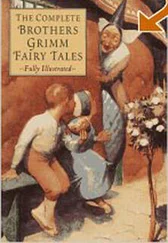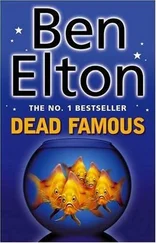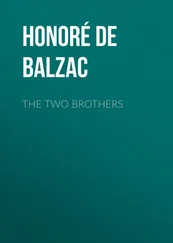Emil Braas, who had been so jealous of them and had tried to take his revenge within a week of Hitler becoming Chancellor. Paulus had thwarted Emil then with a wave of his prick. Turned the crowd round and made the attacker look a fool. Such a trick wouldn’t work again. Paulus had occasionally seen Emil Braas around Friedrichshain during the long years of 1930s, and foreskins or not, everybody knew the Stengel boys were Jews.
And just as in that instant Paulus recognized Emil Braas, he was quite certain that Emil Braas recognized him. Both of course had changed a great deal: no longer fresh-faced boys but battle-hardened men. The eyes, however, didn’t lie.
The game was up.
Certainly Braas was confused. How could he not be? He knew that Paulus Stengel was a Jew. So the fact that his old enemy had turned up in a bistro in occupied France wearing a German military uniform with the dual lightning flash insignia of the SS on it was going to be a shock. But confused or not, Emil Braas knew him.
Although seriously outnumbered, Paulus calculated that for the next few seconds at least he still had the initiative. Braas was confused. He was not. That was a significant advantage if used decisively and Paulus, although never rash, was always decisive.
‘Hello, Emil,’ he said with a broad smile. ‘What’s the matter? Never seen a Jewish SS man before?’
And with that he was out of the door.
Paulus knew that he would have to kill Braas and also the men he was with. What was more he must do it at once before they had the chance to spread their suspicions further or think of calling the military police.
Outside he was relieved to see the dusty road was almost empty. He had chosen to visit that particular bar because of its solitude and isolation, and there were no other Wehrmacht personnel anywhere to be seen. Just an old peasant with a few goats a little further up the dusty track.
Paulus reached a hand into his knapsack.
Not being an officer, his usual weapon was a rifle, but he had left that back at barracks. The French countryside was completely subdued; their leader Marshal Pétain had called for cooperation with Hitler and so German military personnel did not carry their weapons when off duty. However, like many of his comrades, Paulus had picked up a souvenir during the recent fighting. A British officer’s Enfield revolver. Paulus always kept it about him, well oiled and fully loaded for just such an emergency as this.
Pulling it from his bag he ran a few metres up the track and spun around just as the three men crowded through the front door of the tiny bistro in pursuit.
Had the pistol jammed even for an instant Paulus would have been overcome, but British engineering did not let him down. He opened fire immediately, taking the three soldiers absolutely by surprise. The gun was a double-action piece requiring re-cocking for each shot, but Paulus had been well trained in the use of small arms. His left hand flew over the trigger hammer after each shot, just like in a scene from an American western. The pistol blazed and his enemies were left with no time to do more than raise their hands in horror as one after another they took a bullet in the chest and fell. A further three bullets, one fired into each of their heads as they lay twitching in the dust, emptied the chamber and ensured that Paulus’s secret was safe.
Paulus wiped the handle of the gun on his shirt tail, dropped it amongst the dead, mounted his motorcycle and rode off.
The People’s Park
Berlin, 1956
OTTO AND DAGMAR left the arrivals hall together and went to the car park where Dagmar showed him to an IFA F9 motorcar, a powerful, well-built machine which, although somewhat rusted and in need of attention, certainly indicated that whatever it was Dagmar did for a living, she enjoyed privileges that the vast majority of GDR citizens did not.
As they got in she raised her finger momentarily to her lips, clearly fearful that her car was bugged. The men at MI6 had warned Otto that he should presume all conversations in East Berlin would be overheard.
Otto was actually glad of the chance of a moment to think. It was all so very surprising.
And so very wonderful.
Dagmar was alive and surely that meant her letter was genuine. She had reached out to him to help her finally effect that escape which had been denied to her and her family on the boat train platform in 1933 and throughout the long years since.
Was he to be allowed the chance to be her Moses after all?
Dagmar made small talk as the city passed by the windows. This was Berlin, Otto’s home town. And yet he scarcely recognized it. Almost all of the buildings he had known had been reduced to rubble by Allied bombing, and in this eastern sector much of the damage remained unrepaired. Those buildings that had been erected were dull and featureless concrete apartment blocks. Although it occurred to Otto that they were not so very much uglier than those currently being thrown up all over London.
They drove quickly. There was not a great deal of other traffic apart from numerous bicycles, and soon they came upon a very familiar sight.
‘I think you remember this park,’ Dagmar remarked, and of course he did, having been there only recently in his dreams. It was the Volkspark, the very place in which he and his brother had chased Dagmar for a kiss amongst the fairy-tale characters of the Märchenbrunnen.
‘It survived the war, you know,’ Dagmar said.
‘Yes, I heard that,’ Otto replied. ‘I was glad.’
Dagmar found a place to park her car. ‘Come on,’ she said. ‘Let’s go for a walk. I won’t run away this time, I promise.’ They entered the park together.
‘Can we talk now?’ Otto asked after a few steps.
‘Yes,’ she replied, ‘we can talk.’
Where to begin? What to say? There was so much to ask. A lifetime of questions.
But none so urgent as the present one.
‘Why am I here?’ he asked.
Perhaps she wasn’t expecting it. It seemed to take her aback for a moment.
‘I wanted to see you, Ottsy,’ she replied.
Ottsy. How he loved to hear her use that name. It made him feel fifteen again.
‘You wanted to see me,’ he repeated eagerly, then, lowering his tone and looking away, ‘Are you trying to defect?’
She seemed almost surprised.
‘Defect? Goodness,’ she said. ‘You think that’s why I wrote to you?’
Now it was Otto’s turn to be surprised.
‘Well, of course. You mentioned what my mum used to say,’ Otto replied. ‘ Everybody’s looking for Moses .’
‘I wrote that because I knew it would make you come. I knew it would make you know it was me.’
‘But,’ Otto said quietly, ‘isn’t that what you want? Aren’t you looking for a way out of Egypt?’
A smile played on her lips. But it was a sad smile.
‘Oh, always, Ottsy,’ she said. ‘Always that.’
Otto’s mind was spinning. There were so many things he wanted to ask about. His mother, his brother… her. What had happened in all those years since he left Berlin? But again he knew that the present must be dealt with first.
‘Dagmar,’ he said, choosing his words carefully, ‘I’ve been told you are a Stasi officer. Is that true?’
The smile remained for a moment, before fading slowly.
‘Ah,’ she said after a moment. ‘I wondered if you would know about that. We try never to underestimate the British.’
‘So it’s true?’
‘Yes, Ottsy. It’s true.’
‘Christ,’ Otto said. ‘The Stasi . Never in ten million years would I have predicted that.’
‘Ten million years, Ottsy? Oh, I think it’s been longer than that since I last saw you.’
Читать дальше












